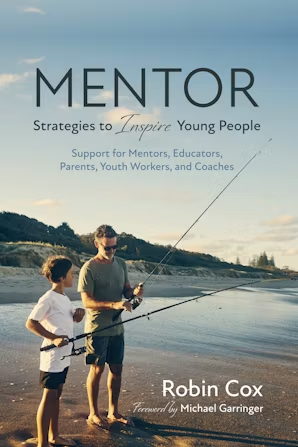A couple of weeks ago, as I was thinking more about the key qualities of a mentor as a friend, my wife and I flew to Cape Town to participate in a Memorial gathering for my closest friend Peter Van Ryneveld. Pete had been diagnosed with a brain tumor about eight weeks ago. He went into hospital for a biopsy and never recovered consciousness. Doctors discovered stage four cancer spreading like a wild fire. Pete was a successful businessman, visionary, philanthropist, conservationist, mentor, and idealistic dreamer (like me) with whom I had communicated for fifty-one years. As teenagers we set out to change the world. Pete had achieved so much before his untimely death. Our friendship was unique, and his death has left a significant void in my life.
Pete had been a friend and mentor to many people, especially those living in disadvantaged areas in Southern Africa. He shared his expertise, gave many a hand up, and spent hours listening, sharing life experiences, and encouraging a variety of people from different cultures and ethnicities to reach their potential.I am incredibly grateful that we were able to spend a week with Pete and his wife lastyear – a special time.
I am putting the finishing touches to my new book, which is due out in early 2024, MENTOR: Strategies to Inspire Youth. A few weeks before he died, Pete commented on the book: “There is no time like the present to benefit from a high-quality mentoring guide for both young people and those in the mentoring arena, which we almost all are as parents, educators, counsellors, or even just good friends. Robin’s latest publication introduces more jewels from his vast experience as a teacher, a mentor, and a coach. It contains essential guidelines for a principle-based approach to mentoring that has yielded tangible success. It offers numerous on-point techniques to help youths find more meaning and fulfilment in a post-COVID world. It is an invaluable sequel to his excellent Mentoring Minutes.”
I share many true stories of the impact of mentors on the lives of young people especially. I share strategies and qualities of an effective mentor who motivates, empowers, navigates, teaches, reflects and keeps an open mind. Then I share how a mentor can also be a friend, and am reminded of all these qualities Pete possessed and displayed in his relationships with others.
This is an extract from the new book.
Qualities of mentors as friends
Friendship is at the core of your relationship with your mentee, though this depends on the type of relationship you enjoy with your mentee. There is a difference, for example, between the volunteer adult mentor who is part of a youth mentoring program, and the more professional relationship between a teacher and a student. The teacher would adapt some of these qualities in line with their profession.
Fun-loving—Have lots of fun together, as young people tend to have a wonderful sense of humor. Nurture a sense of humor. Model what it means to laugh at yourself. Coach your mentee not to take themselves or life too seriously. Michael Karcher moves this thinking to a deeper, more holistic level: “Play is the best way to enter the world of a young person—no matter what age—because doing that extends a sign of respect to youths. Mentors empower people, embolden them, encourage them, and respect them by being playful, because youth know that’s their zone. … What is universal, very healthy, and good to encourage across both genders is the desire to create. Creation in many forms is equivalent to playing in the traditional sense.”
Respectful*—Respect both your mentees and yourself as unique beings of great self-worth with a positive self-image. Acknowledge the right of your mentees to make choices, and show them that their opinions and ideas are valued and matter.
Integrity—Be authentic, honest, and truthful at all times. Be consistent and show up on time; be upright, reliable and committed to the relationship, someone your mentees can depend on.
Empathetic*—Place yourself in the shoes of your mentees in order to understand them better. Try to understand how your mentee is feeling. Model empathy, and coach your mentee how to express empathy in their relationships with family, friends, and other members of the community. Your understanding helps you inspire them to greatness, or to reach their unique potential.
Nurturing—Create a supportive relationship in which your mentees feel cared for, affirmed, and encouraged. Key features in establishing this relationship include being an effective listener with a non-judgmental attitude; commit to your mentees; believe in them; be accessible to them, and give of yourself unconditionally. School principal Paul Browning explains: “listening at its best is a selfless act. It is about the other person and not you. It is about entering their world and seeing it from their viewpoint.”
Developmental—Encourage your mentees to become the people they wish to be, a process that takes time and requires patience, perseverance, and the understanding that developing a friendship also takes time. No “saviors” or “quick fixes” are needed.
Sincere*—Be yourself at all times; be genuine. That is, be aware of your innermost thoughts and feelings, accept them and, when appropriate, share them responsibly (self-expression); know yourself (self-awareness); and accept yourself (self-acceptance). Model a spirit of selfless service—serving others, and expecting nothing in return.
* These are the key qualities, or the foundation stones of any meaningful relationship.




